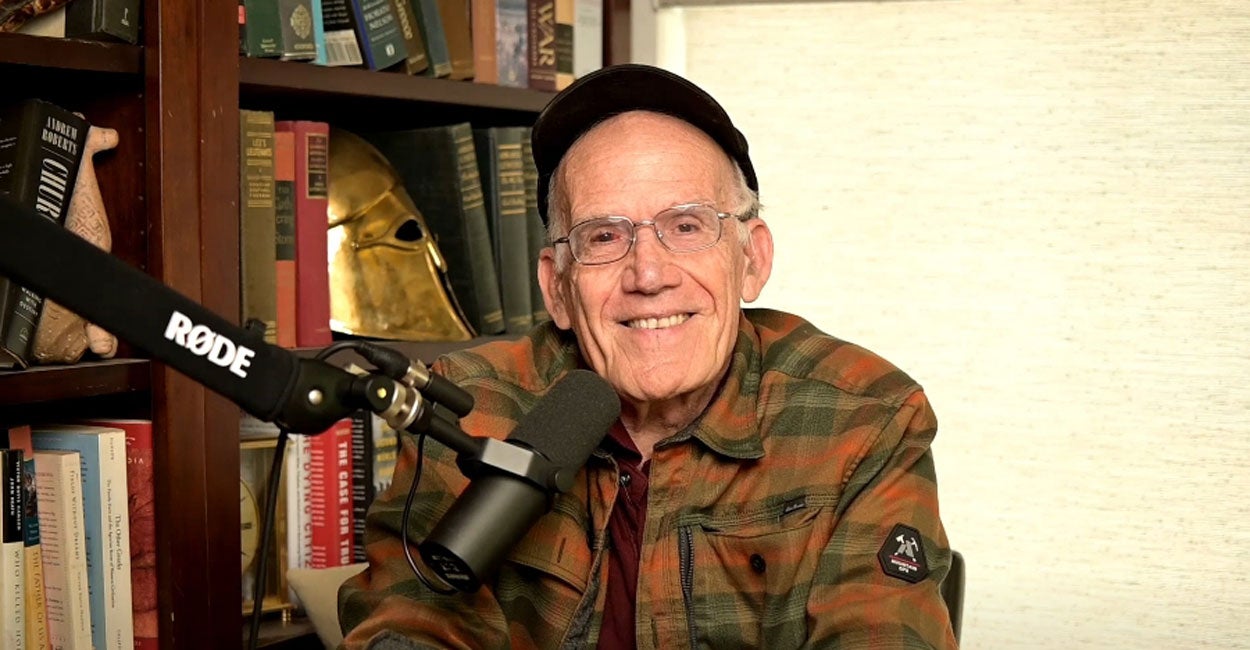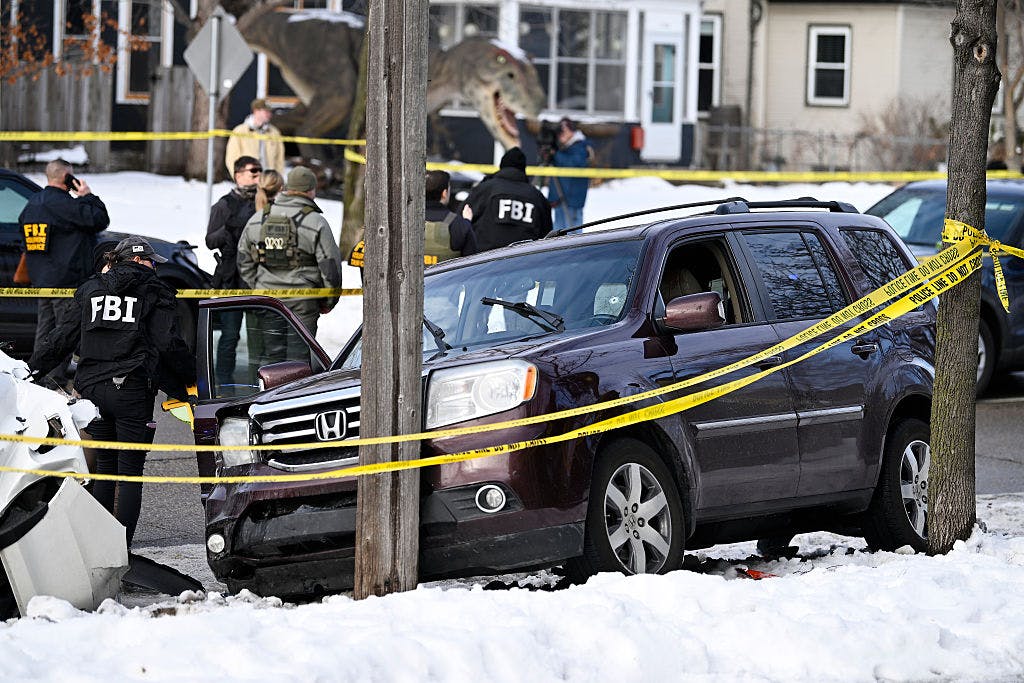This Case Is An Insane Miscarriage Of Justice

If you’ve ever been forced to take a concealed carry class, then the odds are pretty good that you thought the entire thing was a waste of time. These classes are designed to make firearm ownership more of a hassle (and more expensive), so that you give up on the idea of owning a gun. To the extent you receive any instruction at all, you’re told some very basic rules of self-defense. And the most important rule of all, of course, is that you can’t use lethal force unless you have a reasonable belief that you, or someone else, is in imminent danger of death or serious bodily injury. So if someone is running away with your property — even if it’s your car — you can’t shoot them.
Live Your Best Retirement
Fun • Funds • Fitness • Freedom
This is one of those rules that pretty much everyone is familiar with. If you watch crime shows, or pay attention to the news, you understand the concept as well as anyone. You’re led to believe that this is one of those fundamental common law principles that we carried over from England, and that Western societies have always had some kind of general rule like this.
But that’s not remotely true. In fact, the opposite is true.
As recently as the 1980s — yes, the 1980s — the law of self-defense was very different in this country. Until the commentator Jeremy Kauffman mentioned this the other day, I didn’t realize this, but it’s an incredible piece of history that everyone should be aware of.
Here’s where it started: A little before 11:00 PM on October 3, 1974, two Memphis police officers were dispatched to a residential neighborhood to investigate a prowler. Once they arrived, a witness told them that someone had just broken into a house next door. One of the officers went around the back of the house to investigate. At that point, the officer saw someone named Edward Garner running across the backyard, and attempting to scale a 6-foot-high chain link fence.
From the police officer’s perspective, Garner was about five-foot-seven inches tall, roughly 17 years old, and unarmed. (In reality, he was 15). He wasn’t directly threatening anyone at that precise moment, as far as the officer could tell. Nevertheless, the officer was concerned that Garner, who had probably just broken into a house, would escape into the neighborhood if he made it over the fence. The officer recognized that burglary is a serious crime, and that it was important to prevent the suspect from getting away. So within seconds, the officer shot Garner in the back of the head, killing him.
Very quickly, the Memphis firearms review board, and a local grand jury, cleared the officer. That’s because Tennessee, at the time, had a law which allowed police to use any means necessary — including lethal force — to effect a lawful arrest for a serious crime. Years later, when the case wound up in federal district court because the burglar’s family filed a lawsuit, this law was upheld. The court held that Garner had, “recklessly and heedlessly attempted to vault over the fence to escape, thereby assuming the risk of being fired upon.”
That was the law of the United States, as understood by federal courts, as of 1985. If you run away after committing a felony, then it’s legal for police officers to shoot you. Period, end of discussion. The idea was that, even if you weren’t pointing a gun at someone at a particular moment, the mere fact that you had committed a serious crime, by itself, made you a threat as you ran away from the scene. More than half the states had similar laws on the books.
And indeed, the common law tradition, dating back centuries, was that felons were fair game, even if they were running away. In fact, in the year 1285, there was a famous law in Winchester, England that actually required communities of private individuals to chase and apprehend felons who fled the scene. And if the private citizens didn’t catch the felon, one way or the other, then the community would be held liable for the damages caused by the felon’s crime. So it wasn’t just the police who had this obligation. Everyone did.
Deterrence was the main rationale for this kind of policy. That’s been true for centuries. And it was true in states like Tennessee, prior to 1985. After all, if felons know they can be killed on the spot if they commit a serious crime, then they’ll commit fewer crimes. The idea was that criminals had no right to commit crimes in the first place. The moment they made the decision to commit the crime, they forfeited most of the legal protections that law abiding citizens enjoy.
WATCH: The Matt Walsh Show
Which is why, in most places in the world for most of history, including in this country, it was perfectly legal to shoot someone who was in the middle of committing a crime, or who had just committed a crime. And that made a lot of sense. Don’t want to get shot? Don’t commit a crime. Pretty simple.
But on appeal in 1985, the Supreme Court overturned all of this precedent. They held, for the first time, that under our Constitution, fleeing suspects can’t be shot unless they’re posing a clear, imminent danger — as in, pointing a gun directly at someone’s head, or carrying a nuclear bomb, or something like that. This ruling had the effect of instantly overruling half of the states in the country on this point. It was arguably as undemocratic as some of the worst decisions in the Supreme Court’s history, including “Roe v. Wade.” But no one ever mentions it.
Indeed, this is a decision that you’ve probably never heard about, in any context. But it’s one of the most important (and catastrophic) Supreme Court decisions that’s ever been issued. It places a constitutional burden on police officers to carefully assess whether a violent criminal is a supposedly “imminent threat,” at any particular moment. If you shoot a second too early, or too late, then your life is over. The burden is transferred from the criminal over to you. For the most part, you’re expected to watch as thugs commit crimes with impunity. Meanwhile, some of the worst people in the country were given a massive incentive to commit more crimes, knowing full well that no one is allowed to shoot them. They get the benefit of the doubt, under this new system. And they take full advantage of it.
This is a ruling that made this country far more dangerous than it was before. Everyone can understand why. While the Court’s decision in Garner’s case only applied to police officers, it had a significant impact on how states saw the private right of self defense, as well as how they handled citizen’s arrests. And it laid the groundwork for a new pattern of discrimination in the judicial system. Specifically, it led to a wave of prosecutions of police officers and private citizens who used deadly force against fleeing felons. It also contributed to the decline of citizen’s arrest laws all over the country. And it just so happens that, again and again, white defendants who violate the Supreme Court’s revised rule on self-defense (as of 1985) tend to face extremely long prison sentences. But non-white defendants are often given much more lenient sentences, even when they commit indefensible acts of violence.
Here’s the latest example.
It involves a 29-year-old former Space Force sergeant named Orest Schur. Around 11:00 PM on July 5 of 2023, Schur (who is not a police officer) was sleeping in his home in Aurora, Colorado, near the Buckley Space Force Base. That’s when he heard the car alarm going off on his wife’s Hyundai Elantra. It was the third time that someone had tried to steal a car from his home. So Schur grabbed his pistol and went outside, where he saw two people, dressed in all black, trying to break into his wife’s car.
But when Schur confronted the people trying to break into his wife’s car, there was a different outcome. The criminals fled in a separate stolen vehicle. In pre-1985 America — which is to say, for the vast majority of the history of this country, and the world — Schur would’ve had every right to pursue those two criminals. And in this case, that’s exactly what he did. He didn’t want to wait for a fourth attack on his home. He got into the Elantra and chased them. And as he did so, he fired several shots into the getaway car, ultimately causing it to crash just a few blocks away. When the occupants attempted to escape on foot, Schur continued to fire. At that point, he killed 14-year-old Xavier Daniel Kirk, and injured his 13-year-old accomplice. Neither of the teenagers were carrying firearms.
Whatever you think of Schur’s actions, it shouldn’t be controversial to point out that, in all likelihood, he probably saved the community from having to deal with a lot of future criminal activity and violence. The two teenagers he shot were habitual car thieves. Their parents completely failed them. The criminal justice system would’ve given them a slap on the wrist, assuming the police ever got around to arresting them. And then, most likely, they would’ve continued committing more crimes into adulthood, until someone died, one way or the other. That’s generally how these things go. We all know it’s true. And if we’re living in a country that values the rule of law, then we should be able to say that out loud, without any reservations. Even if you condemn what Schur did, legally or morally, you should still be able to acknowledge this. It’s a statistical reality.
But states like Colorado see things differently.
Therefore, in one of the most farcical court proceedings you’ll ever see, Orest Schur was just sentenced to 54 years in prison. He won’t be eligible for parole until his 70’s. For shooting these two criminals, his life is now over. As we’ll discuss in a minute, this is a wildly disproportionate sentence, when you compare it to other cases.
But before we get into that, it needs to be said that this whole trial was nauseating in every possible respect. People in Colorado had to watch several pouty-faced news anchors lamenting the death of this poor 14-year-old “boy,” as if he was a treasured asset of the local community. And then came the “victim impact statements” at sentencing. Watch:
Credit: Denver7/ABC/YouTube.com
Yes, you just saw one of the thugs who tried to steal a man’s car, standing at a podium outside a courthouse, asking why his accomplice, Xavier, is no longer alive — as if it’s some great mystery. He’s not demonstrating any remorse for stealing the car. He’s not suggesting, even a little bit, that Xavier was responsible for what happened. Instead, he’s lecturing us on morality. The habitual car thief is telling us how to define good moral conduct.
The whole sentencing went like this. Watch:
Credit: Denver7/ABC/YouTube.com
A “sense of justice” would involve that mother being thrown in prison. She somehow managed to raise a career criminal who wasn’t even 15 years old. That is — or should be — a crime all by itself. That doesn’t happen without an extraordinary amount of terrible, unforgivably bad parenting. But again, this woman is telling us how to define “justice.”
And things didn’t end there. Somehow the “victim impact statements,” as they’re called, became even more embarrassing as the proceedings went along. Watch:
Credit: CBSNEWS COLORADO/YouTube.com
You heard that correctly: “The part that’s messed up is that Orest Schur’s car was never stolen.” Oh, that’s the part that’s messed up. The fact that Orest Schur woke up, went outside, and interrupted the car thief is what’s “messed up.” That’s the part of the story that really blows this guy’s mind.
Meanwhile, the fact that you have a 14-year-old and a 13-year-old, dressed in all black, stealing every car they can find, is just a “mistake.” That’s an innocent little blooper. What kid that age doesn’t make a mistake, after all? One minute they’re hiding the silverware and stealing cookies from the cookie jar. Then they’re committing grand theft auto. What are you going to do, really? What could the parents possibly have done to prevent this?
Practically everyone at the sentencing made the same claim. They suggested it was all a big “mistake.” Watch:
Credit: CBSNEWS COLORADO/YouTube.com
That’s the whole issue, isn’t it? That’s the big question right there: What punishment do you “deserve”, if you dress up in all black and try to steal someone’s car? If you don’t deserve to get shot, then what should happen to you? What makes more logical sense? If you take someone’s car, in many cases, you’re seriously impacting their life. So what should the punishment be, for doing that repeatedly to other people? Someone should probably spell that out.
What is clear is that Western nations are suddenly having a very difficult time answering this question. In Canada, a 44-year-old homeowner is now facing aggravated assault charges for beating up a thug who broke into his home. Yes, they arrested a man for defending himself against a home invasion. Apparently, the idea is that the man who lived in the home took things too far by sending the home invader to the hospital. He should’ve just allowed himself to get murdered, I guess.
That’s the position that the CBC, which is Canada’s state media, is taking. For his part, Doug Ford, who runs Ontario, just spoke out about the case. Watch:
Credit: Global News/YouTube.com
Yes, people are tired of this. That’s true everywhere in the West. So what’s going to change? And how is it going to change, exactly?
In 1985, when the punishment for committing felonies was lethal force, the Supreme Court explained that we were savages. We were terrible people for allowing criminals to be shot in the back, even when they weren’t posing an “imminent threat” or whatever. Okay, fine. So what system do we have now, in the United States? Do we have an improvement over the system from 1985?
That’s a rhetorical question, obviously. Watch:
Credit: WUSA9/YouTube.com
She brutally murders an UberEats driver in broad daylight, as she steals his car. It’s one of the most horrific crimes imaginable. The man is dragged to his death on camera. An entire family is destroyed. She has no remorse whatsoever. Her lawyer’s best defense is that she has issues with “impulse control.” And after all that, she gets a 7-year sentence. She’ll be out by 21 years old, at the latest.
Can anyone defend this? Even if you’re playing devil’s advocate, is there any logic behind this whatsoever?
There are many, many cases along these lines. Here’s a recent story from Yahoo, for example. This is about a shooting that took place shortly after the George Floyd hysteria began:
[William] Wilson, a biracial Black man … fired his legal handgun at a pickup truck of white teens who he says were yelling racial slurs at him and trying to run him and his white girlfriend off the road near Statesboro, Georgia. One of those bullets struck and killed 17-year-old Haley Hutcheson, who was in the back seat of the truck.
The shooter told police that he had seen, “A truck full of white males driving their car at me and are flipping me off and yelling racial slurs.” So in response, he executed an unarmed 17-year-old woman — someone who was in the backseat of the truck.

Bulloch County Sheriff’s Office via AP, Facebook
Credit: Bulloch County Sheriff’s Office via AP, Facebook
So what happened next? Did the shooter receive 54 years in prison? 44? 34? 24? 14? As it turns out, he received just 10 years in prison, with the potential to be released several years earlier. So on the one hand, you have a Space Force sergeant shooting criminals committing grand theft auto. And on the other hand, you have a black man shooting a white 17-year-old woman who — by his account — was a passenger in a car who was shouting nasty words. One of those crimes is punished by 54 years in prison. The other barely gets less than 20% of that sentence.
Here’s another example. Who could forget the case of CeCe McDonald.

Credit: Wikimedia Commons
CeCe McDonald is a man who identifies as a woman. He stabbed and killed an unarmed 47-year-old man named Dean Schmitz, after an altercation involving allegedly “transphobic insults” and some physical contact. CeCe used scissors to penetrate the victim’s chest three-inches deep, puncturing his heart. When police arrived, CeCe reportedly claimed that the man had charged into the scissors and impaled himself, which happens all the time, as we know. Guess how that turned out? CeCe McDonald was offered a plea bargain. He pleaded to manslaughter and received just 41 months in jail. Not 54 years. 41 months. He got fewer months than Orest Schur got years. And now he’s received about a million awards from the LGBT industry.
Even if we concede that the Space Force sergeant’s case doesn’t qualify under the current law of self-defense, there’s still a very obvious problem here. Our system of laws provides that prosecutors and judges have an extraordinary amount of discretion when they’re deciding how to charge, and how to sentence, criminal defendants. This discretion is used all the time in the name of “compassion” for violent criminals. But it’s never used for men like Orest Schur. In every case, compassion only applies to the worst and most dangerous kinds of people. In this country, you’ll be punished more severely for killing someone who’s trying to steal your car than you’ll be punished for killing someone while trying to steal their car. And if you don’t see the fundamental problem with that dynamic, I don’t know how else to explain it.
Is that the system of justice that the Supreme Court had in mind 40 years ago, when they ruled that criminals should be allowed to rob houses, and then jump fences to escape? It’s hard to say. But that’s the system of justice we have now. And if there’s ever been a moment to revisit this travesty — as the Supreme Court has revisited many other terrible rulings in its history — then the case of Space Force sergeant Orest Schur presents the perfect opportunity.
Fifty-four years in prison for this crime, when so many other violent degenerates are walking free, is so obviously absurd and unjustifiable that it violates our Constitution, as well as our basic sense of morality and justice. Orest Schur may not be a paragon of virtue. He may have violated the law, as it currently stands. But if you’re pretending to put on a sad face when you talk about the criminals he shot, as you defend the constant release of violent carjackers into American communities, then you are infinitely more culpable than he will ever be. The law should recognize that. The law used to recognize that. And therefore, before more lives are destroyed for the benefit of anarchists and criminals with “low impulse control,” the law must change.
Originally Published at Daily Wire, Daily Signal, or The Blaze
What's Your Reaction?
 Like
0
Like
0
 Dislike
0
Dislike
0
 Love
0
Love
0
 Funny
0
Funny
0
 Angry
0
Angry
0
 Sad
0
Sad
0
 Wow
0
Wow
0











































































